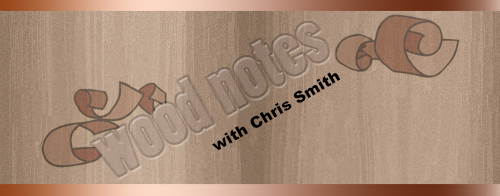
Little Shop of Horrors:
Shop Safety
This is the third and final part of the Little Shop of Horrors. Hope you enjoy!Using the great line that Norm Abrams made popular at the start of his show The New Yankee Workshop, "Before we use any power tools, let's take a moment to talk about shop safety. Be sure to read, understand, and follow all the safety rules that come with your power tools. Knowing how to use your power tools properly will greatly reduce the risk of personal injury. And remember this: there is no more important safety rule than to wear these - safety glasses." This is inevitably the most overlooked part of setting up a shop, but yet probably the most important. What good is a shop full of tools if you are injured and can't use them? You should keep this in mind when purchasing tools and machines.
Several years ago a man named Steve Gass saw the need for a safer table saw, so he set out to create one. He succeeded and now the SawStop is one of the top selling saws in the U.S. If you haven’t heard about this tool then you need to check them out at sawstop.com. It uses flesh detecting technology that will recognize your fingers if they touch the blade and will totally shut down and the blade will drop below the surface of the table, saving you the loss of a finger and a trip to the emergency room with months of physical therapy. I have demoed this machine myself many times (using a hot dog, not my finger) and it has impressed me every time and never failed to do what it says. Klingspor’s Woodworking Shop offers this saw, in all its models, through our retail stores only.
Machines aren't the only area of safety that needs to be reviewed. There are many areas we need to be safe and protect ourselves. No more important safety rule...safety glasses. I have been to the eye doctor many times due to metal, wood, or other foreign objects stuck in my eye, which I couldn't get out. When I was younger, my dad was pulling rusty nails out of some boards and one came out and flew across the driveway and hit me in the eye. I couldn't see out of it for days. You would have thought I would have learned my lesson, but it took me a long time, as I am very stubborn, to realize I need to protect my eyes and ears. I now where safety glasses anytime I am in the shop working or doing any type of work overhead, like working under a sink or on a ceiling. Keeping your eyes safe should be very important to you.
Using machinery or power tools can affect your hearing too. Routers, planers, and jointers can be very loud and can contribute to hearing loss, so be sure to have some hearing protection available.
There are many other areas in which you should consider using safety aids, such as while working with a table saw or other machines. Please use the guards that came with your tools, as well as push sticks, feather boards, etc.
Other safety items include dust masks, face shields, gloves, aprons, etc. Please check out our full line of safety equipment and accessories on our website.
In conclusion
Don’t make excuses about not having room for tools. Just get creative and make your shop size work for you. When setting it up do a lot of research to find the tools and machines that are right for you. And always use safety equipment to protect yourself from injury. I worked in our Hickory retail store for over ten years and saw a LOT of different types of injuries from people performing stupid, unsafe operations. I also saw some accidents that occurred simply because the wood or the tool did something unexpected. So be safe and have fun.
Good luck and happy woodworking.
About Chris Smith
Chris began his woodworking career early while in high school. With three years of woodshop class under his belt, he graduated in 1993 and then began work for a cabinet shop.
His work in the cabinet shop spanned over several years. He continued his skills in cabinetry on his own before joining Klingspor’s Woodworking Shop in 2001.
He found an immediate interest in woodturning while at Klingspor. But, for Chris, it is more than just woodturning as he finds enjoyment in all aspects of woodworking. He has a wealth of 20 years experience in cabinetmaking, furniture building, woodturning, and more.

No comments:
Post a Comment